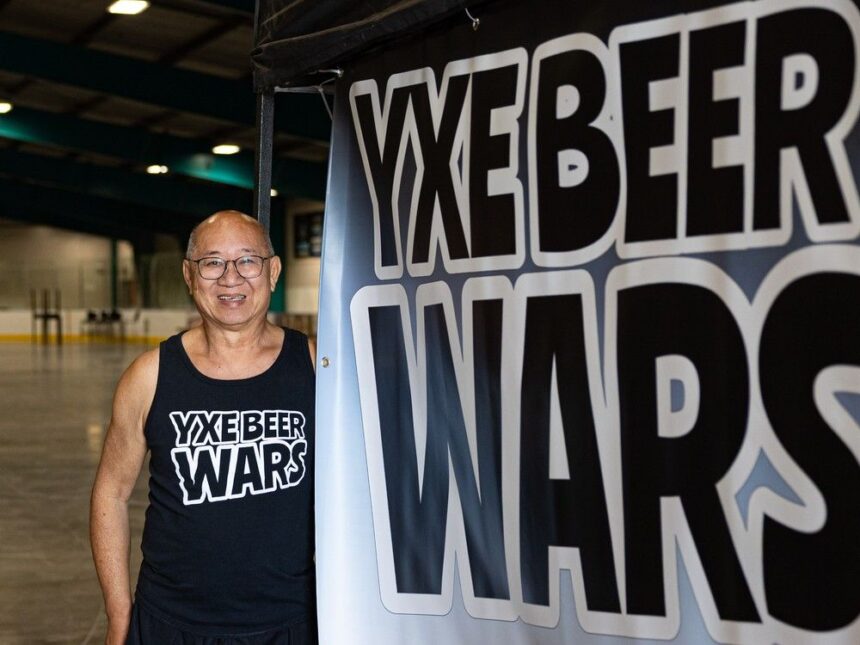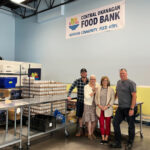The sizzle of grills and the gentle pop of beer caps opening created a symphony of sensory delights last weekend as Saskatoon’s culinary and brewing scenes collided in a friendly but fierce competition. The Saskatoon Food Beer Festival 2024 transformed the city’s downtown into an epicenter of gastronomic experimentation, where food truck innovations battled for supremacy against craft beer creations in what might be the most delicious showdown the Prairie province has seen this summer.
Under clear blue skies that seemed specially ordered for the occasion, thousands of attendees navigated between rows of food trucks and brewery tents, their faces betraying the pleasant dilemma of choosing what to sample next. The festival, now in its fifth year, has evolved from a modest gathering of local vendors to what organizers proudly call “Saskatchewan’s premier food and beverage experience.”
“We’ve created something that celebrates both our exploding food truck culture and the craft beer renaissance happening across the province,” explained festival director Elaine Markowski. “Five years ago, we couldn’t have imagined drawing crowds like this or featuring over thirty different vendors.”
What makes this festival particularly interesting from a cultural perspective is how it reflects broader shifts in Saskatchewan’s relationship with food and drink. Once predominantly known for agricultural production, the province is increasingly becoming recognized for its culinary creativity and craft beverage innovation. This transformation mirrors a continent-wide trend where local food systems are becoming cultural touchstones rather than merely utilitarian.
The festival’s competitive element—pitting food against beer in a battle for attendees’ votes—adds a participatory dimension that transforms passive consumption into active engagement. Festivalgoers received voting cards upon entry and were tasked with deciding whether the culinary or brewing contingents had won their hearts (and stomachs).
Among the standout food offerings, Prairie Smoke & Spice BBQ’s bourbon-glazed brisket tacos garnered enthusiastic praise, while The Karma Kettle’s fusion poutine featuring butter chicken gravy over hand-cut fries created lengthy queues. On the brewing side, Nokomis Craft Ales’ seasonal wild saskatoon berry sour and 9 Mile Legacy’s honey lavender wheat ale demonstrated the creative directions Saskatchewan’s brewing scene is taking.
The festival’s organization itself reflects an interesting cultural phenomenon: the blending of competition and collaboration. While officially structured as a contest, behind the scenes, brewers were sampling food truck offerings to recommend pairings, and chefs were incorporating local beers into their recipes. This “coopetition” model showcases how modern cultural events increasingly blur the line between rivalry and partnership.
What’s particularly fascinating about events like the Saskatoon Food Beer Festival is how they serve as cultural touchstones in mid-sized cities. As I’ve explored in previous articles for CO24 Culture, these gatherings often function as important identity markers for communities seeking to define themselves beyond geographic location or historical context.
The festival also offers a window into changing consumption patterns and values. According to data collected by festival organizers, over 70% of attendees were specifically interested in the “story behind the product”—whether that meant understanding brewing techniques or learning about the source of ingredients. This represents a significant shift from purely consumption-focused events toward experiences that combine education, entertainment, and consumption.
“People don’t just want to eat and drink anymore,” noted Kristian Buan, co-owner of Shelter Brewing. “They want to understand the process, meet the makers, and feel connected to what they’re consuming. It’s a completely different relationship with food and drink than what existed even a decade ago.”
The economic impact of the festival extends beyond the weekend itself. Several previous festivals have spawned permanent business relationships, with food trucks securing regular stations outside popular breweries and brewers developing special editions specifically designed to pair with local food vendors’ offerings. These ongoing partnerships represent a strengthening of Saskatoon’s local food ecosystem and demonstrate how cultural events can catalyze economic development.
As the festival concluded with a narrow victory for the food truck contingent (by just 23 votes out of thousands cast), the real winner was clearly Saskatoon’s evolving identity as a destination for culinary and brewing exploration. In a province once defined primarily by agriculture, events like this demonstrate how production and consumption can form a complete cultural circle, with locally grown ingredients transformed into creative expressions that reflect both tradition and innovation.
As we continue to examine shifting trends in cultural consumption across Canada, the Saskatoon Food Beer Festival offers a compelling case study in how mid-sized cities are carving out distinctive identities through food and beverage culture. When communities elevate everyday consumption to the level of cultural celebration, they create not just memorable weekends, but vital contributions to their ongoing cultural narrative.
Will next year’s festival see the brewers reclaim their title? Perhaps. But the more intriguing question might be: how will this annual celebration continue to shape Saskatoon’s evolving relationship with food, drink, and community identity in the years to come?

























